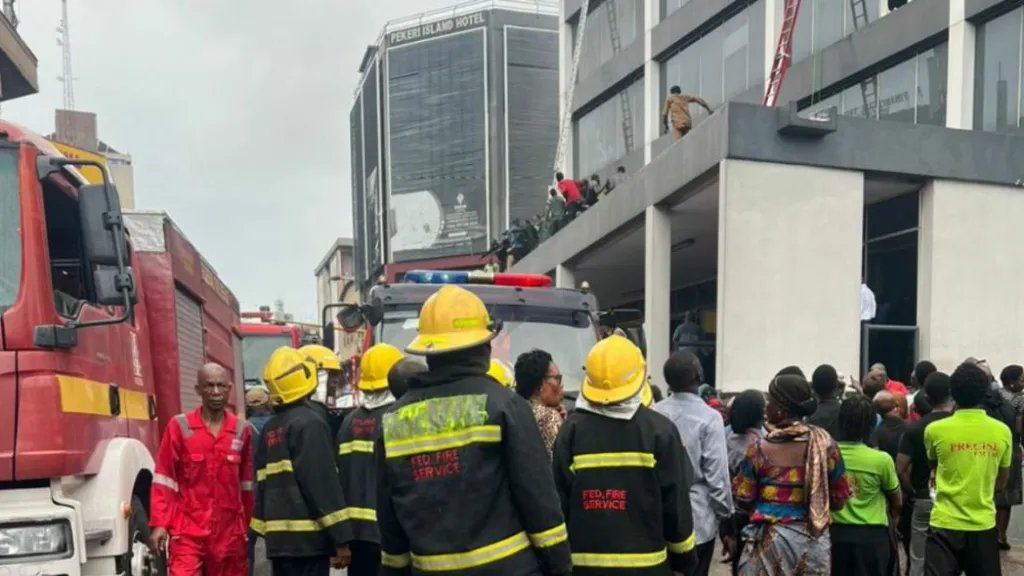Why Workers Jumped From Afriland Tower – Fresh Details Emerge On Fire Incident
Afriland

Why Workers Jumped From Afriland Tower – Fresh Details Emerge On Fire Incident
The tragic fire that engulfed Afriland Tower on Broad Street, Lagos Island, will long remain etched in our collective memory, not only for the thick smoke that blackened the skyline but for the heartbreaking images of workers leaping from windows in sheer desperation. That single act men and women choosing to jump several floors rather than be consumed by smoke is both symbolic and damning. It tells us more about the state of workplace safety and emergency preparedness in Nigeria than any government statement ever could.
Fresh details now confirm that the blaze originated from the basement inverter room, where battery-inverter systems used for backup power ignited. Within minutes, the fire released dense, toxic smoke that spread through ducts and stairwells, turning corridors into death traps. Officials have admitted that most fatalities were caused by smoke inhalation, not flames. Yet, the question lingers: why did safety systems fail to protect those inside?
Afriland Properties insists that alarms, extinguishers, emergency exits and smoke extractors were in place. But real-world events proved otherwise. Survivors recount confusion, inaudible alarms, and evacuation routes choked with smoke. In those critical moments, when every second mattered, workers faced a cruel choice: suffocate in sealed offices or leap into uncertainty. Some chose the latter. Their decisions were not reckless they were rational acts of survival in a system that failed them.
This incident is more than an isolated tragedy; it is an indictment of weak enforcement of safety codes in Nigeria’s commercial high-rises. It is not enough for building owners to parade certificates of compliance. Safety must be lived, tested, and proven under stress. Regular fire drills must go beyond box-ticking exercises. Smoke extraction systems must function when it counts, not just on paper. And facilities with power backup installations must meet far stricter safety regulations.
Equally troubling is the slow pace of emergency response. Although officials maintain that fire services arrived within 20 minutes, in a fire emergency even two minutes can make the difference between rescue and tragedy. Lagos, a city of over 20 million, cannot afford under-resourced fire stations struggling with traffic, poor equipment, and inadequate coordination.
Afriland Tower should now serve as a watershed moment. Government regulators must hold building owners accountable. The Lagos State Safety Commission, the Fire Service, and allied agencies must be empowered — and compelled — to conduct unannounced inspections, publish compliance reports, and shut down non-compliant facilities without fear or favour. Anything less dishonours the lives lost.
The men and women who jumped from those windows did so because they were abandoned by a system that promised safety but delivered chaos. Their deaths must not become just another headline in a country accustomed to tragedies. They must become a rallying cry for reform.
Nigeria cannot continue to learn safety lessons in blood and smoke. The Afriland Tower fire must mark the beginning of a new culture of accountability, preparedness, and prevention. Only then can workers in our high-rises be assured that their lives are worth more than the profit margins of the companies they serve.





















